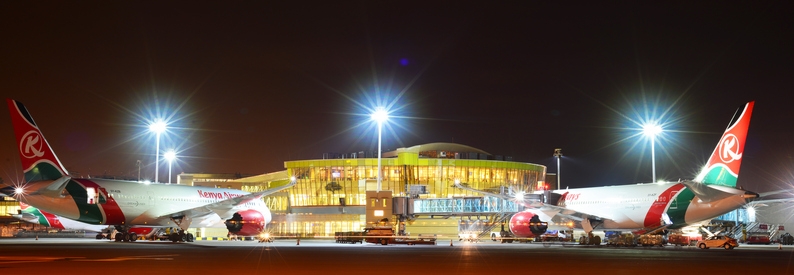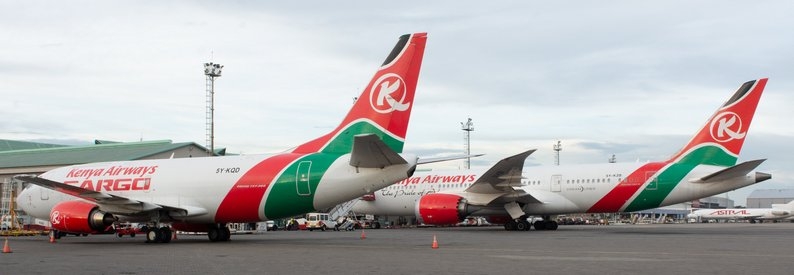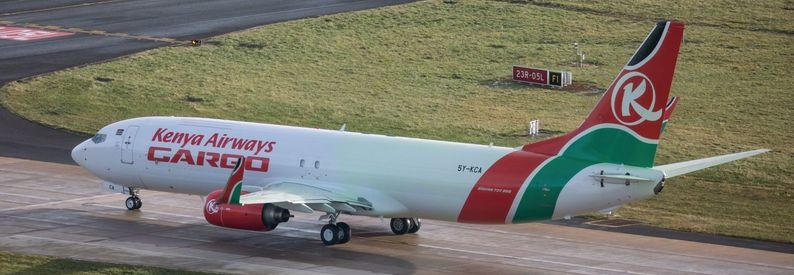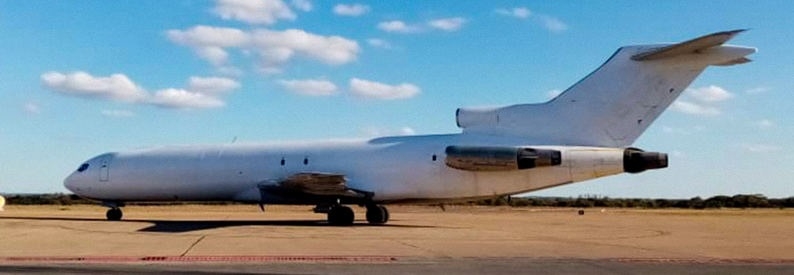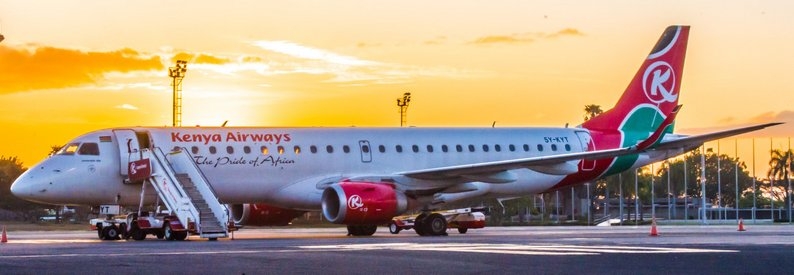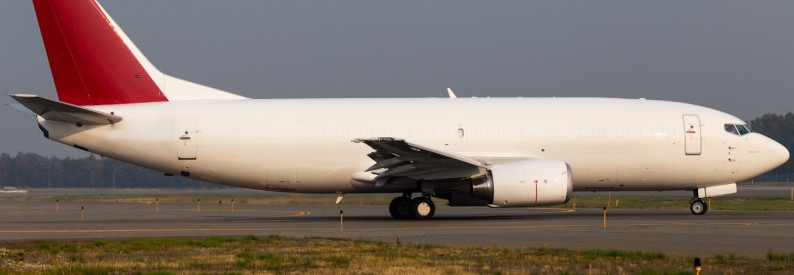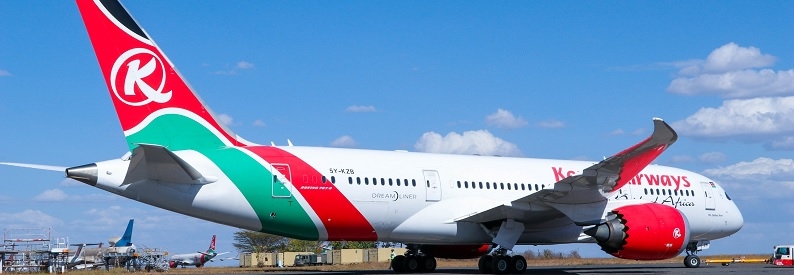Kenya Airways (KQ, Nairobi Jomo Kenyatta) has reported flight disruptions resulting from delays in getting some of its aircraft undergoing scheduled maintenance back into operations due to global aircraft component supply chain problems.
“This has constrained our aircraft availability because we do not have extra aircraft capacity to help alleviate the delays,” Chief Executive Officer Allan Kilavuka said in a statement. “In the event that supply chain challenges persist, we may have changes in our flight schedules with reductions in some frequencies.”
He pointed out these challenges were global, resulting from the Ukraine war crisis which was impacting the supply of raw materials from countries including Russia. “For example, 100% titanium used on Embraer (EMB, São José dos Campos Professor Urbano Ernesto Stumpf) and 35% titanium used on Boeing (BOE, Washington National) are sourced from Russia. With a limited inventory, airlines have had to look worldwide to find the parts they need.”
Kilavuka said the airline was doing everything possible within its control and working with partners to reduce the impact on its operations. “We are currently finalising a component support programme to help fast-track the securing of components. We are also actively engaging our OEM (original equipment manufacturer) partners to work on mitigation measures which should ensure the continuity of our network and operations,” he explained.
It was not immediately clear which aircraft were affected, nor which parts, in particular, were being delayed. Kilavuka was not immediately available for more comment.
According to the ch-aviation fleets module, Kenya Airways has a fleet of eight B737-800s (all active); nine B787-8s of which two are out for maintenance; thirteen ERJ 190-100ARs of which two are not in active service. Its two B737-300(SF)s are active, according to ch-aviation data.
International intelligence provider Frost & Sullivan, in 2022 reported that at least some part of the global supply chain was dependent on sourcing the required raw materials from Russia, in particular for titanium. It said aviation support entities like MRO (Maintenance Repair and Overhaul) giant MTU Aero Engines AG, which sourced 10% of its titanium from Russia, and aircraft parts supplier FACC AG, were looking for alternative sources for their titanium requirements.
Fitch Ratings-London last year reported the Russia–Ukraine crisis was disrupting supply chains in the European aerospace and defence (A&D) sector, including key metals deliveries. It predicted that hedging strategies and high inventory levels would mitigate the impact in the short term, but if disruptions continued beyond 2022, supply availability and elevated prices could reduce aerospace companies’ profit margins and production volumes.

